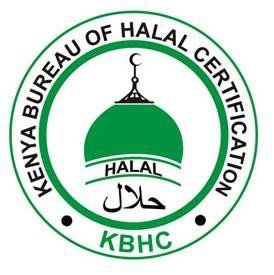In the UK, halal certification is an important aspect for consumers who follow Islamic dietary laws. Halal, which means “permissible” in Arabic, refers to food and products that are allowed under Islamic law. To help consumers ensure that the food they eat meets these standards, many companies in the UK seek halal certification. In this article, we’ll explain what Halal Certifications UK is, why it’s important, and how it works in the UK.
What Is Halal Certification?
Halal certification is a process that ensures food and products meet the requirements of Islamic law. This applies to the way food is sourced, processed, and prepared. Halal certification also covers other products such as cosmetics, medicines, and personal care items.
To receive halal certification, a business must follow strict guidelines set out by a halal certification authority. These authorities are responsible for checking that the food is halal, meaning that it is free from anything forbidden by Islamic law. For example, pork and alcohol are not allowed in halal food. Additionally, animals must be slaughtered in a specific way, known as “dhabiha,” which ensures the animal is treated humanely.
Why Is Halal Certification Important?
Halal certification is important for several reasons. First and foremost, it helps Muslim consumers identify products that meet their religious dietary needs. Without halal certification, it can be difficult for people to know if a product is truly halal.
In addition, halal certification allows businesses to cater to a growing market. The Muslim population in the UK is increasing, and more consumers are seeking halal options. By obtaining halal certification, businesses can expand their customer base and provide products that meet the needs of Muslim consumers.
Moreover, halal certification builds trust. When consumers see a halal certification label, they know the product has been thoroughly checked and meets the necessary standards. This trust is vital for both consumers and businesses.
Who Provides Halal Certification in the UK?
In the UK, several organisations offer halal certification. These organisations set the standards for what is considered halal and ensure businesses comply with those standards. Each organisation may have slightly different requirements, but they all follow the basic principles of Islamic dietary law.
Some of the major halal certification bodies in the UK include:
- Halal Monitoring Committee (HMC): HMC is one of the most well-known halal certification bodies in the UK. They carry out regular inspections of food businesses to ensure their products meet halal standards.
- Halal Food Authority (HFA): The HFA also provides halal certification and is recognised by many businesses and consumers in the UK. They focus on ensuring food is prepared according to Islamic principles.
Businesses that want to receive halal certification must apply to one of these organisations. The certification body will then carry out inspections and audits to ensure the business meets the required standards.
How Does the Certification Process Work?
The process of getting halal certification involves several steps. First, a business must contact a certification body and apply for certification. Once the application is received, the certification body will review the business’s practices and products to ensure they meet halal requirements.
This review includes inspecting the ingredients used in the products, the way animals are slaughtered, and the overall production process. For food products, the business must show that the food is free from pork, alcohol, and any other forbidden substances.
In the case of meat, the slaughtering process is carefully monitored. The animal must be healthy at the time of slaughter, and a prayer must be said as the animal is killed. This process is carried out by a qualified individual who ensures the animal is treated humanely.
After the inspection, the certification body will decide whether the business meets the halal standards. If everything is in order, the business will receive its halal certification. The certification is usually valid for a certain period, after which the business must undergo another inspection to renew it.
What Products Can Be Halal Certified?
Halal certification applies to a wide range of products, not just food. Here are some of the most common categories that can receive halal certification:
- Meat and Poultry: For meat to be halal, it must come from an animal that has been slaughtered according to Islamic law. This is one of the most common products that require halal certification.
- Processed Foods: Many packaged foods, such as snacks, ready meals, and frozen foods, can be halal certified. The ingredients and production methods are checked to ensure they meet halal standards.
- Cosmetics and Personal Care Products: Some cosmetics and skincare products can contain animal by-products or alcohol, which are not halal. Halal certification ensures these products are free from forbidden ingredients.
- Medicines: Certain medicines and supplements can also be halal certified. This is important for Muslim consumers who want to ensure their health products comply with Islamic law.
Why Do Businesses Seek Halal Certification?
There are many reasons why businesses choose to get halal certification. First, it helps them tap into the growing market of Muslim consumers who are looking for halal products. By offering halal-certified products, businesses can increase their sales and reach new customers.
Second, halal certification can improve a business’s reputation. Many consumers trust businesses that go through the halal certification process because it shows they care about their customers’ needs. This trust can lead to customer loyalty and repeat business.
Finally, halal certification can help businesses compete in the global market. Many countries, particularly in the Middle East and Asia, require imported products to be halal certified. By obtaining certification, UK businesses can export their products to these markets and grow their international presence.
Conclusion
Halal certification in the UK plays a key role in helping businesses provide products that meet Islamic dietary laws. Whether it’s food, cosmetics, or medicines, halal certification ensures these products are free from any forbidden substances and are produced in a way that aligns with Islamic principles. For Muslim consumers, halal certification offers peace of mind, knowing the products they use and consume meet their religious requirements.


